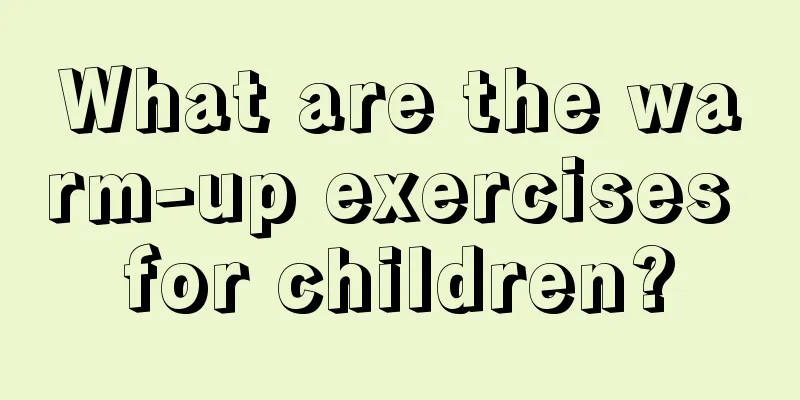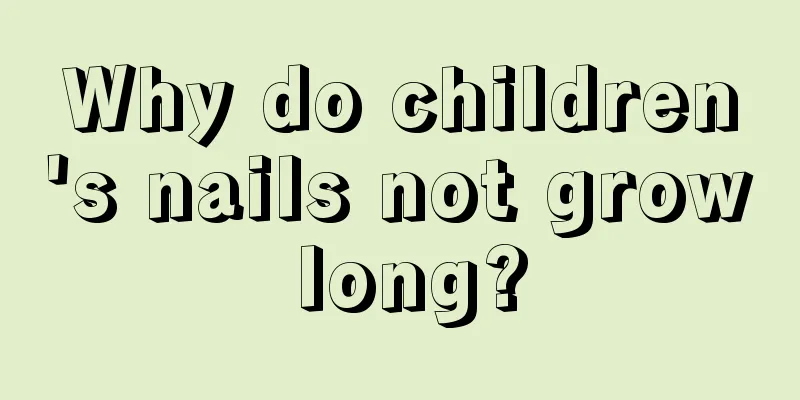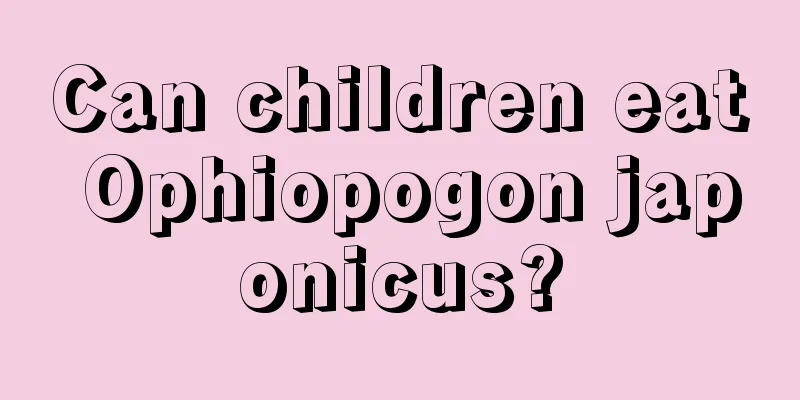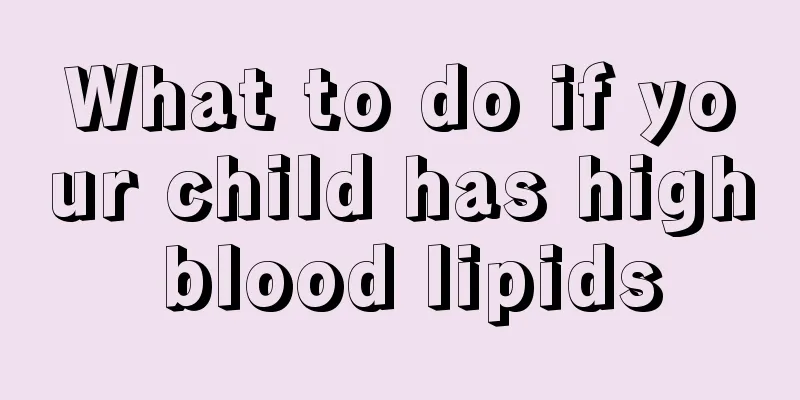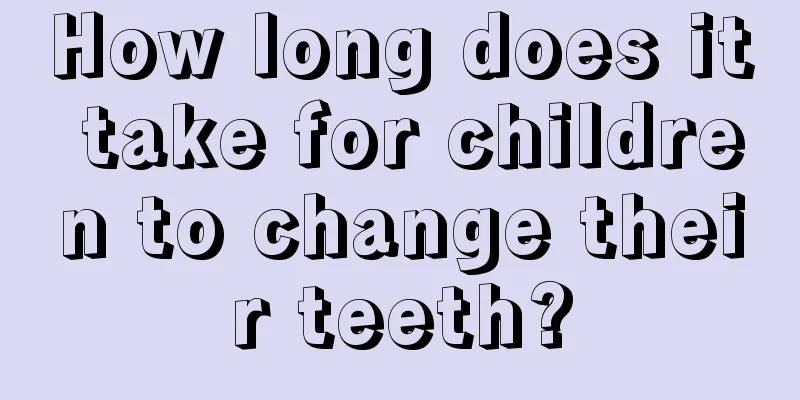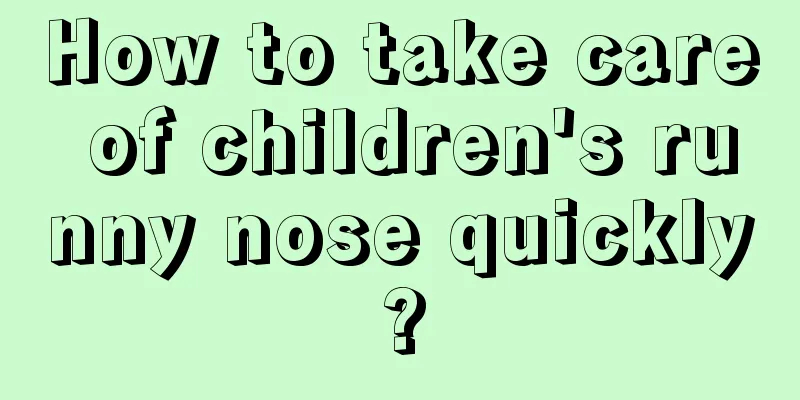What should I do if my three-year-old child still drools?
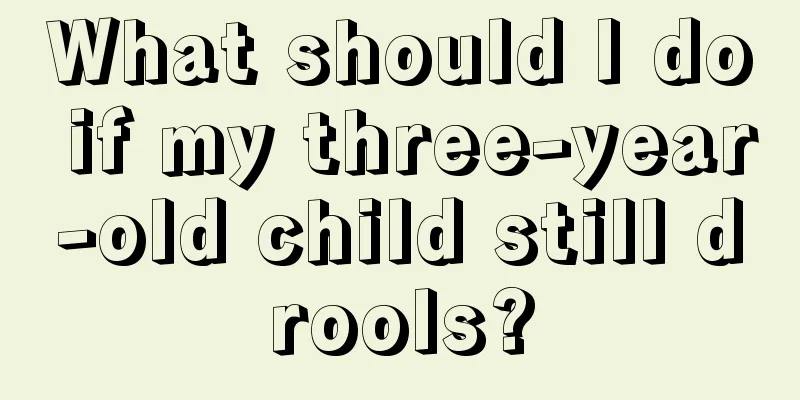
|
Many people say that it is natural for children to drool. In fact, it is not true. Not all babies drool from birth. This is because the salivary glands are not very irritating after birth, so the amount of saliva is relatively small. But as time goes by, the amount of saliva will become a lot, and the secretion of saliva will gradually increase. However, babies will still drool at around three years old, which can be considered an abnormal phenomenon. Is it normal for babies to drool? Is it normal for babies to drool? In many cases, drooling in babies is a normal physiological phenomenon, which will naturally get better as they grow and develop fully. Babies do not drool when they are just born because their salivary glands are underdeveloped. In the first week after birth, the amount of saliva secreted per day is 50 to 80 ml (1000 to 1500 ml for adults), which is just enough to moisten the oral mucosa, so you cannot see the baby drooling at this time. Generally, the amount of saliva secretion will increase significantly when the baby is 3 months old. Babies start to add complementary foods after 4 to 6 months. Food has a strong stimulation on the nerves and salivary glands, which will enhance the secretion function of the salivary glands and cause a significant increase in saliva. However, the baby will not drool at this time. Generally, babies drool when their deciduous teeth erupt. The eruption of deciduous teeth produces mechanical stimulation to the gingival sensory nerves, causing the salivary glands to secrete more saliva. At this time, the child's oral cavity is small and shallow, and the swallowing reflex function is not yet perfect. They cannot use swallowing movements to regulate saliva and cannot swallow excess saliva in time, causing saliva to accumulate in the mouth and overflow. When babies are happy or laughing, their saliva will flow out of their mouths. In addition, many babies like to put their fingers, rubber nipples, etc. into their mouths and suck them, which also stimulates the secretion of the salivary glands and increases saliva. When the baby's deciduous teeth erupt, the small teeth push outward from the gums, causing mild discomfort to the gum tissue and stimulating the nerves on the gums, which can also lead to an increase in the reflex secretion of the salivary glands. As the deciduous teeth erupt, the baby's alveolar sockets gradually form, the palate slowly rises, and the bottom of the mouth gradually deepens to accommodate more saliva; in addition, the swallowing movement is gradually trained to mature, and the baby can use swallowing to regulate the amount of saliva in the mouth, and can swallow the saliva in time, so the drooling stops naturally. Reasons why babies drool From the above we can understand that babies usually drool when their deciduous teeth erupt. This is a normal phenomenon. However, in addition to normal physiological growth that can cause babies to drool, there are some non-physiological reasons that can also cause babies to drool. Let's learn about it below. 1. Breastfeeding for too long. Extend breastfeeding beyond the age of 1, and even add complementary foods after weaning. This practice is not conducive to the normal development of children's digestive system and often causes drooling accompanied by indigestion. 2. Some parents and relatives often pinch their children's cheeks out of love. This practice can easily cause mechanical damage to the child's parotid gland, resulting in the secretion of saliva much greater than that of normal children, thus causing drooling. 3. Oral diseases such as bacterial stomatitis, stomatitis caused by herpes virus, mucosal congestion or ulceration, or ulcers on the tip of the tongue, cheeks, and lips will lead to excessive secretion of salivary glands, resulting in drooling. 4. Diseases of the nervous system, such as damage to the centers, nerve conduction pathways, and nerves related to salivation, can all cause drooling. 5. When suffering from certain congenital diseases, drooling is common, and it is also accompanied by symptoms such as mental retardation, slow reaction, dull eyes, erratic crying, and tongue sticking out of the mouth. |
>>: Child drooling under Bart Red
Recommend
How to enhance children's immunity
Children are in a very important stage of growth ...
What should five-month-old babies eat to supplement zinc?
Generally speaking, five-month-old babies lack zi...
What causes hunchback in children?
Although hunchback is a very common phenomenon, i...
Newborn baby panics and won't sleep
The world of newborns is very simple. Small thing...
What is the most effective food for children with phlegm?
It is a common phenomenon for children to have ph...
Newborn baby won't sleep after feeding
Babies have the habit of feeding before going to ...
The reason why the baby's palms and feet are hot
What should we do when our baby shows symptoms su...
What causes a child to have a fever while teething?
Many parents and friends have recently said that ...
How to relieve leg pain caused by calcium deficiency
Children are in the stage of growing up. At this ...
What should I do if my child always has indigestion?
If a child always has difficulty in digestion, it...
How to make your baby urinate for urine test
When babies are very young, they cannot speak, so...
Can newborns drink honeysuckle? Can babies drink honeysuckle water?
It is best not to drink honeysuckle for newborns,...
Eight-month-old baby's fontanelle is a little big
We may be unfamiliar with the fontanelle, which i...
What kind of lighting is good for children's eyes?
Nowadays, we find that more and more children are...
6 ways to solve your child's bad habit of watching TV every day
1. Don’t place a TV in your baby’s room Most mode...
